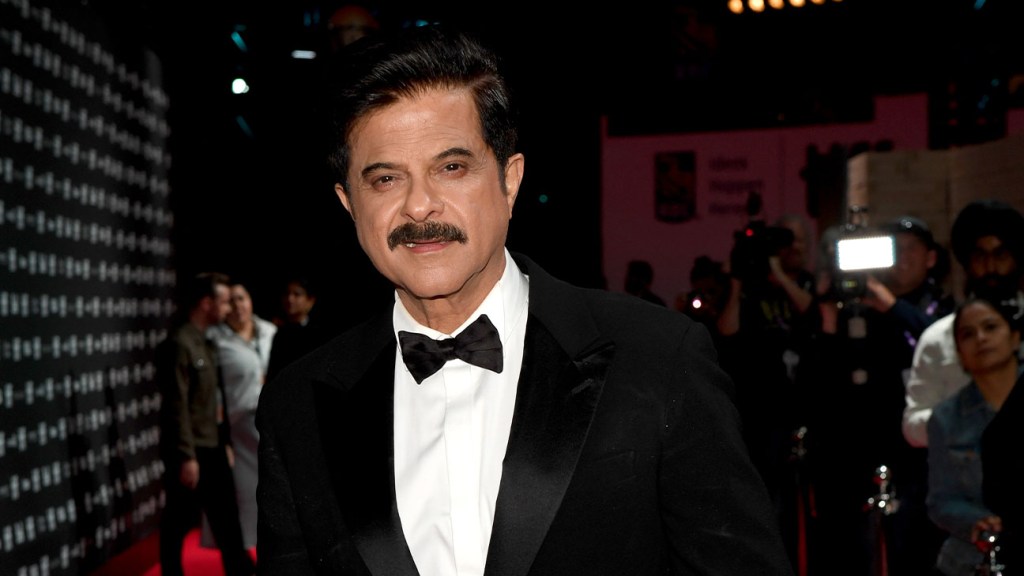
After India recently had one of its spacecraft reach the moon, Slumdog Millionaire star Anil Kapoor says it’s time for the country’s booming film industry to land more box office performers in the West.
“I feel Bollywood is coming of age and a lot of filmmakers are making movies that appeal to international audiences, and they’re happy films, positive films, they have a lot of joy, and that’s what the world needs,” Kapoor told The Hollywood Reporter on Saturday.
His comments followed the world premiere Friday night at the Toronto Film Festival for Thank You For Coming, the debut feature from Kapoor’s son-in-law Karan Boolani, which the Bollywood star’s youngest daughter, Rhea, produced.
Kapoor pointed to the mix of feel-good emotions and social commentary in classic Charlie Chaplin films as a model for Thank You For Coming, which stars Bhumi Pednekar as Kanika Kapoor, a food blogger who has never had an orgasm, until one night after which she needs to find out who got her there.
“Charlie Chaplin made you smile and then you got a lump in your throat towards the end of the movie, and there’s music and his films said something when you left the theater,” Kapoor recalled. Thank You For Coming also stars Shehnaaz Gill, Dolly Singh, Kusha Kapila and Shibani Bedi, who were at Roy Thomson Hall on Saturday night to launch the Bollywood comedy-drama and thrill local fans in Toronto.
Boolani’s film tackles themes of female friendship, single women risking shame and criticism for wanting to remain unmarried and independent, and the pursuit of sex and pleasure by modern-day single women. Kapoor also pointed out Bollywood needs to make more movies by and for women that will connect with international audiences.
“I’ve done a lot of films that were led by women, and I was a supporting actor, and I just liked the stories,” he argued. Kapoor remembered Slumdog Millionaire, which won the People’s Choice Award at Toronto in 2008 on its way to Oscar glory, having a British director in Danny Boyle, but otherwise was the product of Bollywood talent, including screenwriter Vikas Swarup.
“The stem of the story and all the actors were brown people and Indians,” he said. “[Bollywood] stories have always been there, but now with the digital age and the recognition we’re getting at festivals and the opportunities, the filmmakers and actors and storytellers are more encouraged to make stories that will reach out to the world.”













